- Prepare for the hours ahead
- Go for a walk
- Do the deep work
- Do a kindness
- Read. Read. Read.
- Find true quiet
- Make time for strenuous exercise
- Think about death
- Seize the alive time
- Say thanks — to the good and bad
- Put the day up for review
- Find a way to connect to something big
- Get eight hours of sleep
Some advice for readers
Less ‘rules’ than notes, this post by Ryan Holiday (himself a prolific author) is worth reading. I like the part where he turns the tables, “You say you don’t have time to read but what does the screen time app on your phone say? What does your calendar say?"
Along the way, Holiday emphasises the importance of a systematic approach over speed reading, advocates for physical books, note-taking, and seeking wisdom rather than mere facts. He also encourages readers to share impactful books with others. (You can check out my reading list and reviews here.)
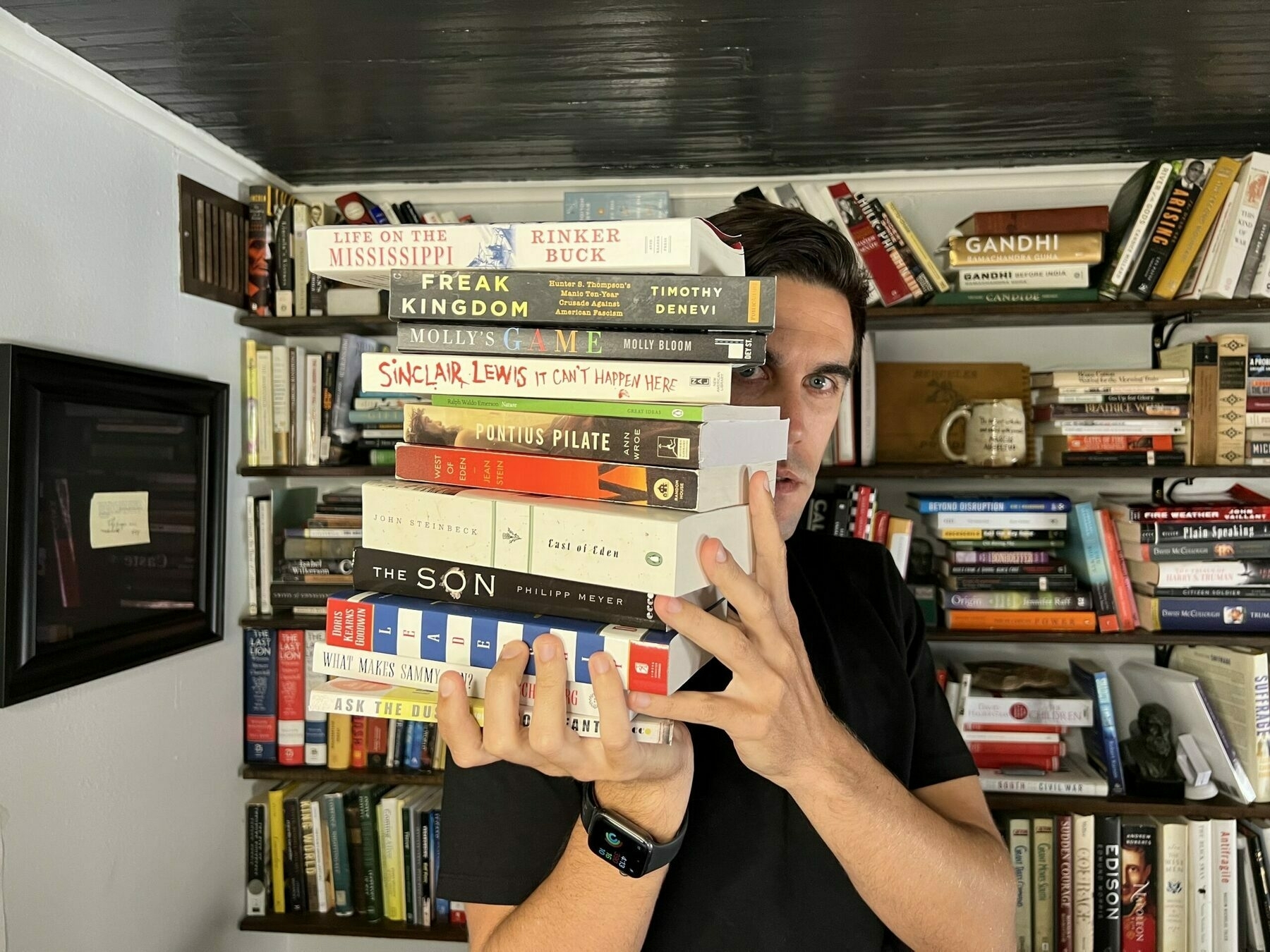
So the question I am asked most often is:Source: These 38 Reading Rules Changed My Life | RyanHoliday.netHow do you read so much? What’s the secret?
The answer is not “I’m a speedreader.” As I’ve written before, speed reading is a scam. The answer is that I have a system, a process that helps me be a productive reader. It’s not my system exactly, as I’ve taken many strategies from history’s greatest readers. Nor is this a system designed around speed or quantity. Reading is wonderful in and of itself, why would I try to rush through it? No, I try to do it well. I try to enjoy it.
The importance of being yourself
Any article that quotes the Stoic philosopher Epictetus and talks about the importance of being yourself is a winner.
When we are ourselves, we have value. When we are like everyone else…we are fungible. We are replaceable–by definition. We have little value…by definition.Source: This Is The Best Career Decision You Can Possibly Make | Ryan Holiday[…]
BE YOU. Be the only one of you in the whole world. Be the red. That’s where the fun is (without having to fake it). That’s where the money is (you can name your price). That’s where the value is (you can’t be replaced).
[…]
Two thousand years before Peter Thiel said that, “competition is for losers,” Epictetus quipped that, “You can always win if you only enter competitions where winning is up to you.”
[…]
Too many people pointlessly enter contests where the outcome is dependent on forces outside their control. They think it’s safer to be like everyone else…when in fact, what they’re really doing is hiding themselves in the chorus, protecting themselves from judgment. They’re less likely to be singled out and laughed at, sure, but they’re guaranteeing that they’ll never really be noticed or appreciated. Theirs becomes the Indian restaurant that will never be great, but it will never be closed. That is the best you can expect when you’re not playing to win…you’re playing not to lose.
If you have been put in your place long enough, you begin to act like the place
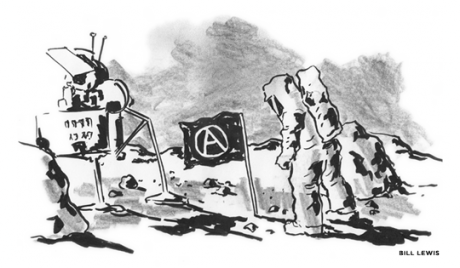
📉 Of Flying Cars and the Declining Rate of Profit
💪 How to walk upright and stop living in a cave
🤔 It’s Not About Intention, It’s About Action
💭 Are we losing our ability to remember?
🇺🇸 How The Presidential Candidates Spy On Their Supporters
Quotation-as-title by Randall Jarrell. Image from top-linked post.
Saturday shakings
Whew, so many useful bookmarks to re-read for this week’s roundup! It took me a while, so let’s get on with it…
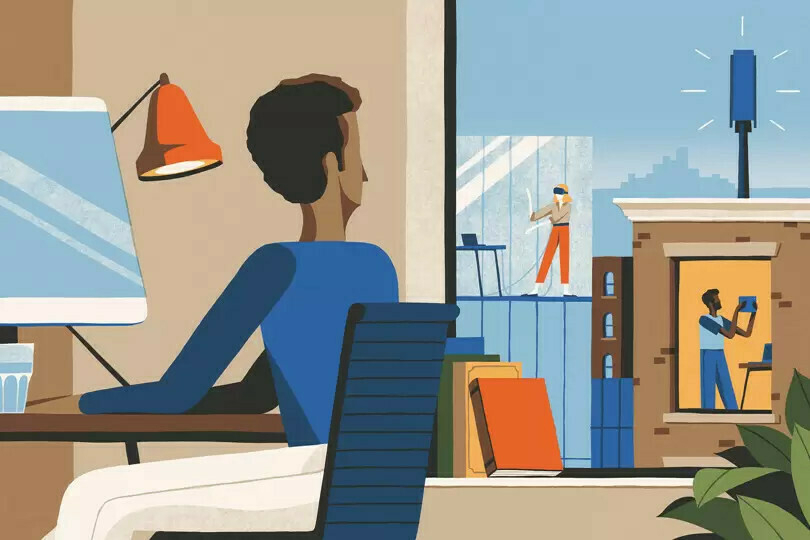
What is the future of distributed work?
To Bharat Mediratta, chief technology officer at Dropbox, the quarantine experience has highlighted a huge gap in the market. “What we have right now is a bunch of different productivity and collaboration tools that are stitched together. So I will do my product design in Figma, and then I will submit the code change on GitHub, I will push the product out live on AWS, and then I will communicate with my team using Gmail and Slack and Zoom,” he says. “We have all that technology now, but we don't yet have the ‘digital knowledge worker operating system’ to bring it all together.”
WIRED
OK, so this is a sponsored post by Dropbox on the WIRED website, but what it highlights is interesting. For example, Monday.com (which our co-op uses) rebranded itself a few months ago as a 'Work OS'. There's definitely a lot of money to be made for whoever manages to build an integrated solution, although I think we're a long way off something which is flexible enough for every use case.
The Definition of Success Is Autonomy
Today, I don’t define success the way that I did when I was younger. I don’t measure it in copies sold or dollars earned. I measure it in what my days look like and the quality of my creative expression: Do I have time to write? Can I say what I think? Do I direct my schedule or does my schedule direct me? Is my life enjoyable or is it a chore?
Ryan Holiday
Tim Ferriss has this question he asks podcast guests: "If you could have a gigantic billboard anywhere with anything on it what would it say and why?" I feel like the title of this blog post is one of the answers I would give to that question.
Do The Work
We are a small group of volunteers who met as members of the Higher Ed Learning Collective. We were inspired by the initial demand, and the idea of self-study, interracial groups. The initial decision to form this initiative is based on the myriad calls from people of color for white-bodied people to do internal work. To do the work, we are developing a space for all individuals to read, share, discuss, and interrogate perspectives on race, racism, anti-racism, identity in an educational setting. To ensure that the fight continues for justice, we need to participate in our own ongoing reflection of self and biases. We need to examine ourselves, ask questions, and learn to examine our own perspectives. We need to get uncomfortable in asking ourselves tough questions, with an understanding that this is a lifelong, ongoing process of learning.
Ian O'Byrne
This is a fantastic resource for people who, like me, are going on a learning journey at the moment. I've found the podcast Seeing White by Scene on Radio particularly enlightening, and at times mind-blowing. Also, the Netflix documentary 13th is excellent, and available on YouTube.
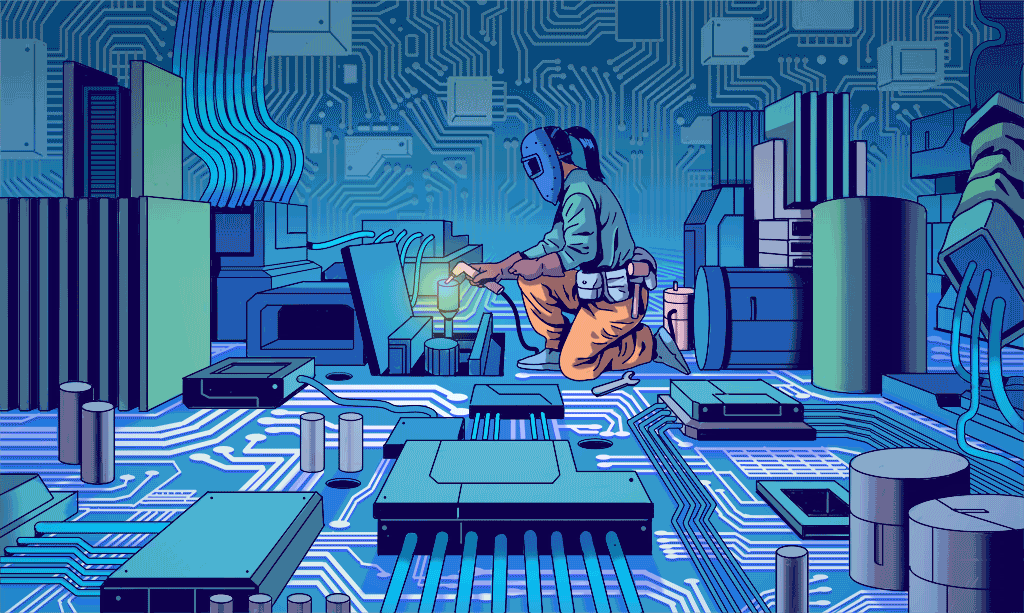
How to Make Your Tech Last Longer
If we put a small amount of time into caring for our gadgets, they can last indefinitely. We’d also be doing the world a favor. By elongating the life of our gadgets, we put more use into the energy, materials and human labor invested in creating the product.
Brian X. Chen (The new York times)
This is a pretty surface-level article that basically suggests people take their smartphone to a repair shop instead of buying a new one. What it doesn't mention is that aftermarket operating systems such as the Android-based LineageOS can extend the lifetime of smartphones by providing security updates long beyond those provided by vendors.
Law enforcement arrests hundreds after compromising encrypted chat system
EncroChat sold customized Android handsets with GPS, camera, and microphone functionality removed. They were loaded with encrypted messaging apps as well as a secure secondary operating system (in addition to Android). The phones also came with a self-destruct feature that wiped the device if you entered a PIN.
The service had customers in 140 countries. While it was billed as a legitimate platform, anonymous sources told Motherboard that it was widely used among criminal groups, including drug trafficking organizations, cartels, and gangs, as well as hitmen and assassins.
EncroChat didn’t become aware that its devices had been breached until May after some users noticed that the wipe function wasn’t working. After trying and failing to restore the features and monitor the malware, EncroChat cut its SIM service and shut down the network, advising customers to dispose of their devices.
Monica Chin (The Verge)
It goes without saying that I don't want assassins, drug traffickers, and mafia types to be successful in life. However, I'm always a little concerned when there are attacks on encryption, as they're compromising systems also potentially used by protesters, activists, and those who oppose the status quo.
Uncovered: 1,000 phrases that incorrectly trigger Alexa, Siri, and Google Assistant
The findings demonstrate how common it is for dialog in TV shows and other sources to produce false triggers that cause the devices to turn on, sometimes sending nearby sounds to Amazon, Apple, Google, or other manufacturers. In all, researchers uncovered more than 1,000 word sequences—including those from Game of Thrones, Modern Family, House of Cards, and news broadcasts—that incorrectly trigger the devices.
“The devices are intentionally programmed in a somewhat forgiving manner, because they are supposed to be able to understand their humans,” one of the researchers, Dorothea Kolossa, said. “Therefore, they are more likely to start up once too often rather than not at all.”
Dan Goodin (Ars Technica)
As anyone with voice assistant-enabled devices in their home will testify, the number of times they accidentally spin up, or misunderstand what you're saying can be amusing. But we can and should be wary of what's being listened to, and why.
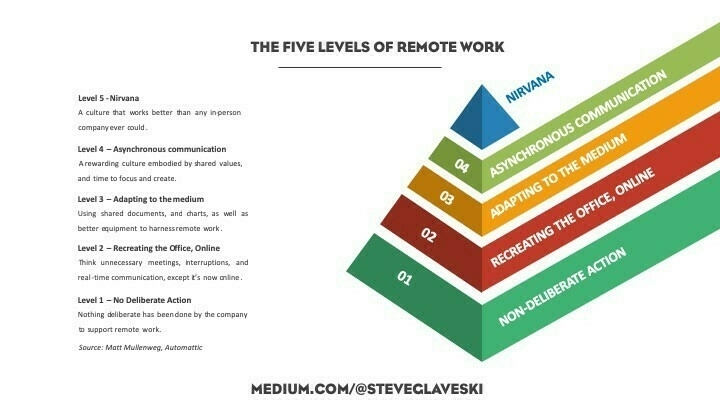
The Five Levels of Remote Work — and why you’re probably at Level 2
Effective written communication becomes critical the more companies embrace remote work. With an aversion to ‘jumping on calls’ at a whim, and a preference for asynchronous communication... [most] communications [are] text-based, and so articulate and timely articulation becomes key.
Steve Glaveski (The Startup)
This is from March and pretty clickbait-y, but everyone wants to know how they can improve - especially if didn't work remotely before the pandemic. My experience is that actually most people are at Level 3 and, of course, I'd say that I and my co-op colleagues are at Level 5 given our experience...
Why Birds Can Fly Over Mount Everest
All mammals, including us, breathe in through the same opening that we breathe out. Can you imagine if our digestive system worked the same way? What if the food we put in our mouths, after digestion, came out the same way? It doesn’t bear thinking about! Luckily, for digestion, we have a separate in and out. And that’s what the birds have with their lungs: an in point and an out point. They also have air sacs and hollow spaces in their bones. When they breathe in, half of the good air (with oxygen) goes into these hollow spaces, and the other half goes into their lungs through the rear entrance. When they breathe out, the good air that has been stored in the hollow places now also goes into their lungs through that rear entrance, and the bad air (carbon dioxide and water vapor) is pushed out the front exit. So it doesn’t matter whether birds are breathing in or out: Good air is always going in one direction through their lungs, pushing all the bad air out ahead of it.
Walter Murch (Nautilus)
Incredible. Birds are badass (and also basically dinosaurs).
Montaigne Fled the Plague, and Found Himself
In the many essays of his life he discovered the importance of the moderate life. In his final essay, “On Experience,” Montaigne reveals that “greatness of soul is not so much pressing upward and forward as knowing how to circumscribe and set oneself in order.” What he finds, quite simply, is the importance of the moderate life. We must then, he writes, “compose our character, not compose books.” There is nothing paradoxical about this because his literary essays helped him better essay his life. The lesson he takes from this trial might be relevant for our own trial: “Our great and glorious masterpiece is to live properly.”
Robert Zaresky (The New York Times)
Every week, Bryan Alexander replies to the weekly Thought Shrapnel newsletter. Last week, he sent this article to both me and Chris Lott (who produces the excellent Notabilia).
We had a bit of a chat, with us sharing our love of How to Live: A Life of Montaigne in One Question and Twenty Attempts at An Answer by Sarah Bakewell, and well as the useful tidbits it's possible glean from Stefan Zweig's short biography simply entitled Montaigne.
Header image by Nicolas Comte
If you change nothing, nothing will change
What would you do if you knew you had 24 hours left to live? I suppose it would depend on context. Is this catastrophe going to affect everyone, or only you? I'm not sure I'd know what to do in the former case, but once I'd said my goodbyes to my family, I'm pretty sure I know what I'd do in the latter.
Yep, I would go somewhere by myself and write.
To me, the reason both reading and writing can feel so freeing is that they allow you to mentally escape your physical constraints. It almost doesn't matter what's happening to your body or anything around you while you lose yourself in someone else's words, or you create your own.
I came across an interesting blog recently. It had a single post, entitled Consume less, create more. In it, the author, 'Tom', explains that the 1,600 words he's shared were written over the course of a month after he realised that he was spending his life consuming instead of creating.
A lot of ink has been spilled about the perils of modern technology. How it distracts us, how it promotes unhealthy comparisons with others, how it makes us fat, how it limits social interaction, how it spies on us. And all of these things are probably true, to some extent.
But the real tragedy of modern technology is that it’s turned us into consumers. Our voracious consumption of media parallels our consumption of fossil fuels, corn syrup, and plastic straws. And although we’re starting to worry about our consumption of those physical goods, we seem less concerned about our consumption of information.
We treat information as necessarily good, and comfort ourselves with the feeling that whatever article or newsletter we waste our time with is actually good for us. We equate reading with self improvement, even though we forget most of what we’ve read, and what we remember isn’t useful.
TJCX
I feel that at this juncture in history, we've perfected surveillance-via-smartphone as the perfect tool to maximise FOMO. For those growing up in the goldfish bowl of the modern world, this may feel as normal as the 'water' in which they are 'swimming'. But for the rest of us, it can still feel... odd.
This is going to sound pretty amazing, but I don't think there's been many days in my adult life when I've been able to go somewhere without anyone else knowing. As a kid? Absolutely. I can vividly remember, for example, cycling to a corn field and finding a place to lie down and look at the sky, knowing that no-one could see me. It was time spent with myself, unmediated and unfiltered.
This didn't used to be unusual. People had private inner lives that were manifested in private actions. In a recent column in The Guardian, Grace Dent expanded on this.
Yes life after iPhones is marvellous, but in the 90s I ran wild across London, up to all kinds of no good, staying out for days, keeping my own counsel entirely. My parents up north would not speak to me for weeks. Sometimes, life back in the days when we had one shit Nokia and a landline between five friends seems blissful. One was permitted lost weekends and periods of secret skulduggery or just to lie about reading a paperback without the sense six people were owed a text message. Yes, things took longer, and one needed to make plans and keep them, but being off the grid was normal. Today, not replying... is a truly radical act.
Grace Dent
"Not replying... is a truly radical act". Wow. Let that sink in for a moment.
Given all this, it's no wonder in our always-on culture that we have so much 'life admin' to concern ourselves with. Previous generations may have had 'pay the bills' on their to-do list, but it wasn't nudged down the to-do list by 'inform a person I kind of know on Twitter that they have incorrect view on Brexit'.
All of these things build upon incrementally until they eventually become unsustainable. It's death by a thousand cuts. As I've quoted many times before before, Jocelyn K. Glei's question is always worth asking: who are you without the doing?
Realistically, most of our days are likely to involve some use of digital communication tools. We can't always be throwing off our shackles to live the life of a flâneur. To facilitate space to create, therefore, it's important to draw some red lines. This is what Michael Bernstein talks about in Sorry, we can't join your Slack.
Saying yes to joining client Slack channels would mean that down the line we’d feel more exhausted but less accomplished. We’d have more superficial “friends,” but wouldn’t know how to deal with products much better than we did now. We’d be on the hook all the time, and have less of an opportunity to consider our responses.
Michael Bernstein
In other words, being more available and more 'social' takes time away from more important pursuits. After all, time is the ultimate zero-sum game.
Ultimately, I guess it's about learning to see the world differently. There very well be a 'new normal' that we've begun to internalise but, for now at least, we have a choice to use to our advantage that 'flexibility' we hear so much about.
This is why self-reflection is so important, as Wanda Thibodeaux explains in an article for Inc.
In sum, elimination of stress and the acceptance of peace comes not necessarily from changing the world, but rather from clearing away all the learned clutter that prevents us from changing our view of the world. Even the biggest systemic "realities" (e.g., work "HAS" to happen from 9 a.m. to 5 p.m.) are up for reinterpretation and rewriting, and arguably, inner calm and innovation both stem from the same challenge of perceptions.
Wanda Thibodeaux
To do this, you have to have to already have decided the purpose for which you're using your tools, including the ones provided by your smartphone.
Need more specific advice on that? I suggest you go and read this really handy post by Ryan Holiday: A Radical Guide to Spending Less Time on Your Phone. The advice to be focused on which apps you need on your phone is excellent; I deleted over 100!
You may also find this post useful that I wrote over on my blog a few months ago about how changing the 'launcher' on your phone can change your life.
If you make some changes after reading this, I'd be interested in hearing how you get on. Let me know in the comments section below!
Quotation-as-title from Rajkummar Rao.
Ryan Holiday's 13 daily life-changing habits
Articles like this are usually clickbait with two or three useful bits of advice that you’ve already read elsewhere, coupled with some other random things to pad it out. That’s not the case with Ryan Holiday’s post, which lists:
Source: Thought Catalog
Money in, blood out
A marvellous post by Ryan Holiday, who is well versed in Stoic philosophy:
Seneca, the Roman statesman and writer, spoke often about wealthy Romans who have spent themselves into debt and the misery and dependence this created for them. Slavery, he said, often lurks beneath marble and gold. Yet, his own life was defined by these exact debts. With his own fortune, he made large loans to a colony of Britain at rates so high it eventually destroyed their economy. And what was the source of this fortune? The Emperor Nero was manipulatively generous with Seneca, bestowing upon him numerous estates and monetary awards in exchange for his advice and service. Seneca probably could have said no, but after he accepted the first one, the hooks were in. As Nero grew increasingly unstable and deranged, Seneca tried to escape into retirement but he couldn’t. He pushed all the wealth into a pile and offered to give it back with no luck.Eventually, death—a forced suicide—was the only option. Money in, blood out.
You need to know what you stand for in life so you can politely decline those things that don’t mesh with your expectations and approach to life. This takes discipline, and discipline takes practice.
Source: Thought Catalog
